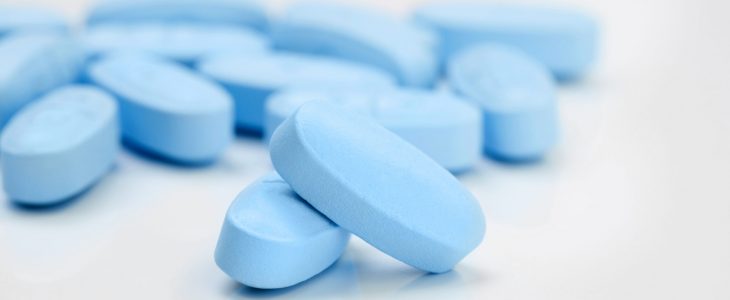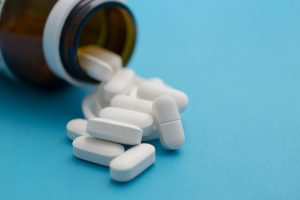What Is The Success Rate of Valium Rehab?
June 23, 2023

If you or someone you know is struggling with Valium addiction and considering rehab, you’ve come to the right place. In this guide, we’ll explore the success rates of Valium rehab and shed light on what you can expect from this journey towards recovery.
What is Valium?
Valium is a medication that falls under the benzodiazepine category. Doctors often prescribe it to treat conditions such as anxiety, muscle spasms, and seizures.
It works by enhancing the effects of a natural chemical called gamma-aminobutyric acid (GABA) in the brain. GABA helps you feel more calm and relaxed by inhibiting excess brain activity.
For this reason, diazepam is effective in treating conditions like anxiety, which are marked by increased activity in the brain. As GABA regulates that activity, you will feel less anxious and more relaxed.
The drug comes in tablet form and is typically taken orally. Your doctor determines the dosage and frequency of intake based on your specific needs and conditions.

It’s important to note that diazepam, like other benzodiazepines, has the potential for abuse and addiction. The sedative and calming effects of the drug can make it appealing if you’re seeking to escape stress, anxiety, or other emotional challenges. However, prolonged use or misuse of the drug can lead to dependence. At this point, you will need specialized treatment to break free from its grip.
Addiction to this drug is a serious matter that can have significant consequences in your life. Recognizing the signs of addiction, such as increased tolerance, cravings, and withdrawal symptoms when attempting to quit, is crucial. When you observe these signs, seek professional help right away. The earlier you embark on the journey to recovery, the better your chances of success.
Drug rehab programs offer a structured and supportive environment to help you overcome your addiction. These programs aim to:
- Address the underlying issues contributing to addiction
- Provide tools and strategies for managing cravings and triggers
- Support you in building a healthier, drug-free life
Remember, if you or someone you know is grappling with drug addiction, seeking professional help is the first step towards recovery. The journey will not be easy. But with the right support, determination, and a comprehensive treatment plan, it is possible to overcome your addiction and regain control of your life.
What happens during drug rehab?
Drug rehab programs are designed to provide a safe environment. Here, you can address the causes of your addiction and work towards a healthy, drug-free life. These programs typically involve a combination of behavioral therapies, counseling, detoxification, and aftercare support.
Detoxification
The first step in any rehab program is detoxification, or detox for short. During detox, the body is allowed to rid itself of diazepam. Medical professionals will watch over you throughout the entire process to make sure you stay safe. If you develop any unpleasant withdrawal symptoms, they may give you medications as well. The medications help you manage withdrawal, making detox more comfortable.
A medically assisted detox process ensures a safe transition into the next phase of treatment.
Therapy and Counseling
Therapy and counseling play a vital role in rehab. Individual and group therapy sessions let you explore the underlying causes of your addiction, learn coping mechanisms, and develop strategies for relapse prevention.
Therapists and counselors will guide you throughout their recovery journey. In a formal rehab program, they are professionally trained and certified to provide the services they give.
Aftercare Support
Recovery doesn’t end once you’ve completed your rehab program. Aftercare support is crucial for maintaining long-term sobriety. It can include ongoing therapy, participation in support groups like Narcotics Anonymous, and having a strong support system in place. Aftercare programs significantly contribute to sustained recovery and reduce the risk of relapse.
How successful is Valium rehab?

Now, let’s address the big question. It’s important to note that addiction recovery is a highly individualized process, and success rates can vary. Outcomes depend on multiple factors such as the severity of the addiction, commitment to treatment, and the presence of co-occurring disorders.
Studies and anecdotal evidence suggest that drug rehab programs have been successful for many individuals seeking help. The National Institute on Drug Abuse (NIDA) reports that participation in comprehensive treatment programs, which may include rehab, can lead to significant reductions in drug use. Also, people who go through rehab have marked improvements in personal and social functioning.
It’s worth noting that success in rehab is not solely defined by abstaining from the drug. Recovery is a complex journey, and success can be measured by various factors. These include:
- Improved physical and mental health
- Restored relationships
- Regaining control over your life
- Finding purpose and fulfillment while being sober
Several factors can influence the success rates of drug rehab. These factors include:
- Willingness to change: A genuine desire and commitment to overcome addiction are essential for success in rehab.
- Support system: Having a strong support system, including family, friends, and rehab professionals, can significantly increase the chances of a successful recovery.
- Duration of treatment: The length of time spent in rehab can impact the effectiveness of the program. Longer durations often allow you to address deep-rooted issues and acquire essential skills for long-term sobriety.
- Dual diagnosis: Co-occurring mental health disorders, such as depression or anxiety, can complicate the recovery process. If you have them, treating both addiction and mental health simultaneously is crucial for success.
Conclusion
Valium rehab offers hope and a pathway to recovery if you are struggling with addiction to this drug. While success rates may vary, comprehensive treatment programs, including detox, therapy, and aftercare support, have shown promising results in helping individuals overcome their addiction.
Remember, success in rehab is not solely about abstaining from the drug. It consists of a broader spectrum of physical, emotional, and social well-being. With the right support, commitment, and a personalized treatment plan, you can embark on a journey towards lasting recovery. You can reclaim a fulfilling, drug-free life soon enough.